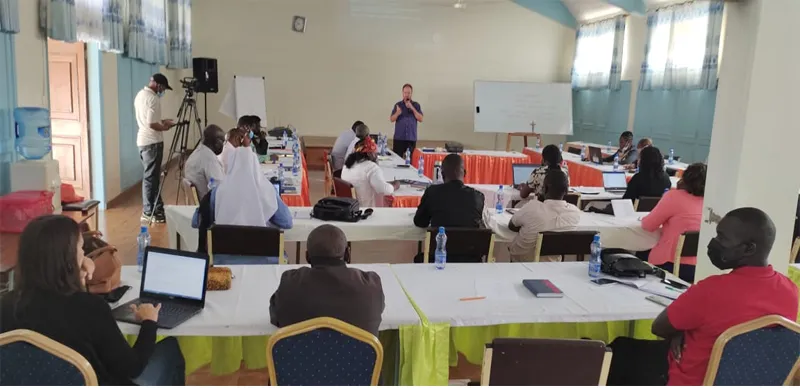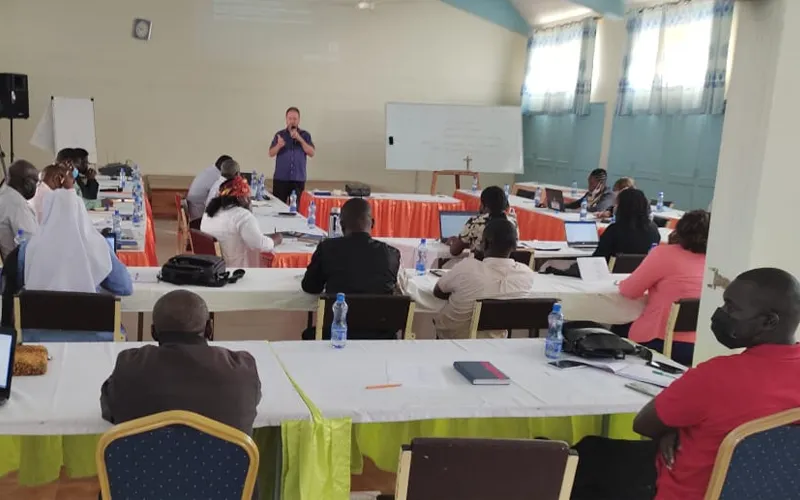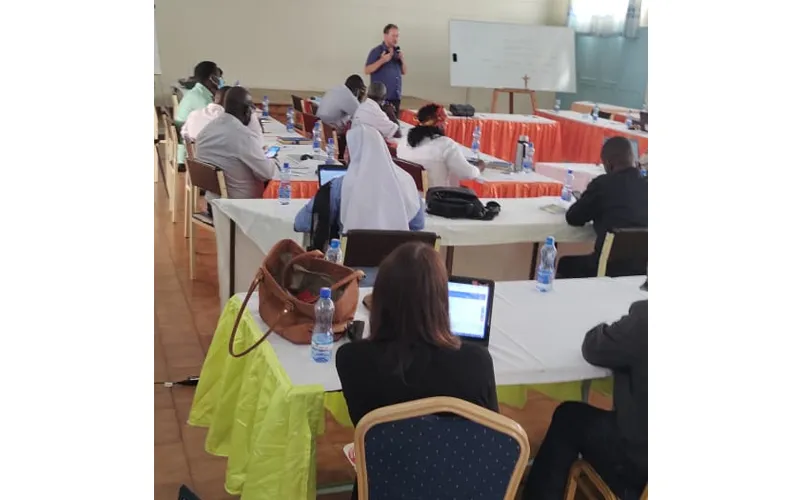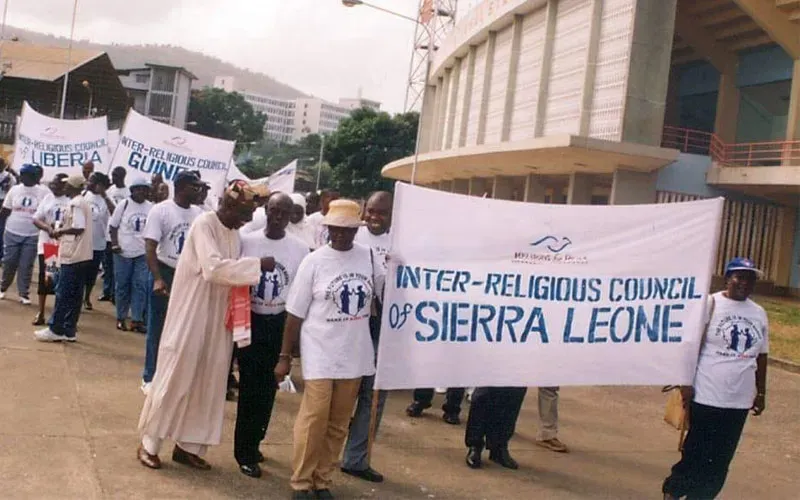“The Catholic Church is very big here,” he said, and added, “It’s not like South Africa, where it’s 8 percent of the population. They have a voice and they are present in every community. They need to urge voters to reject any gifts that political aspirants are offering them to blind their judgment during elections.”
“Do not be fooled by a political party that comes and gives cash donations to pastors, or they give bags of rice to the unemployed and the elderly… Go instead for what you believe in and for the one whose policies resonate with you,” Mr. Viljoen said.
The DHPI official’s appeal to Kenyan leaders is to let the world know what is happening in the country and foster relationships with countries that will help in the event that any crisis befalls the country.
“Kenya is a very important strategic country, not only in Africa, but in the world. It is important that you build your international alliances. And through the media, publicize what’s happening so that the decision makers in Europe, in the US and in other countries and the general public know what’s happening, and so that there is international solidarity with the people of Kenya in whatever happens after the election,” he said.
“Get to the root of the problem, expose the ones who are benefiting from it, raise global awareness and build international partnerships, because we are in a global village, and a country cannot just withdraw into itself and say what happens here is an internal political matter, nothing is internal anymore,” the official of the SACBC peace entity said.
(Story continues below)
He noted that whatever happens in Kenya will affect the entire East Africa region, “and possibly even the entire sub–Saharan African continent.”
Mr. Pothier, the Program Manager of the Catholic Parliamentary Liaison Office of the SACBC, said that the workshop with JPC officials in Kenya was aimed at equipping the Church officials with skills to intervene in national elections in various ways, including “promoting the common good”.
 Credit: Eusebius Atamallo
Credit: Eusebius Atamallo
“If you’re wanting to intervene in an election situation, civil society advocacy is about trying to promote the common good, trying to speak for people who may not have a voice of their own. In scriptural terms, it’s that old thing of the prophets speaking truth to power, using the church’s moral authority, sometimes encouraging church leadership to speak up, when they see injustice happening, and so on,” Mr. Pothier told ACI Africa.
He said the workshop is an effort “in the context of elections” to make sure that the elections are peaceful, orderly, free and fair, “and that the population really gets a chance to express their wishes.”
Participants at the workshop raised concerns such as tribalism and negative ethnicity as well as the lack of trust in Kenya's election system as some of the factors that may impede a peaceful election in the country.
“There’s a general concern in Kenya around tribalism and ethnicity. Participants say that these two get weaponized at election time,” Mr. Pothier said.
He added, “There’s a lack of trust in the process. People have mentioned words like rigging and electoral fraud, corruption of various kinds going on.”
The Program Manager of the Catholic Parliamentary Liaison Office of the SACBC said that the lack of trust in Kenya’s election process can be addressed by making the actual voting process more and more sophisticated with enough checks and balances being built in the process.




 Credit: Eusebius Atamallo
Credit: Eusebius Atamallo
 Credit: Eusebius Atamallo
Credit: Eusebius Atamallo


